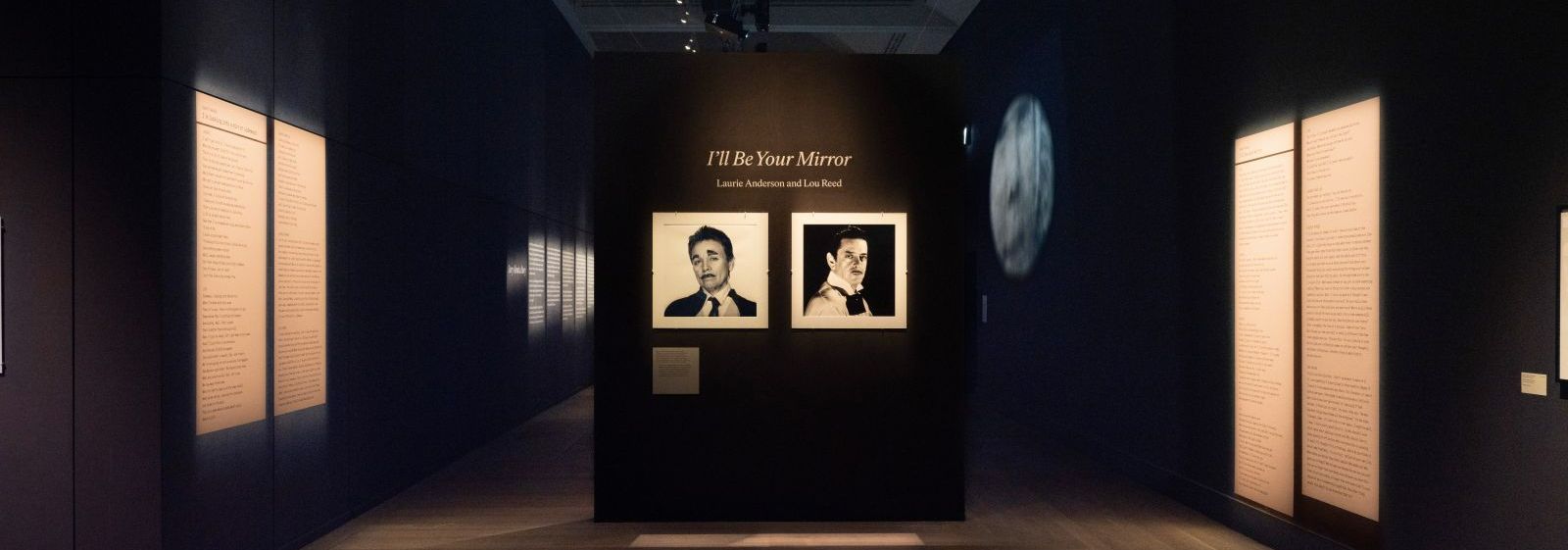Laurie Anderson on the vital place of language in society: ‘Words are the most powerful thing in the world’
Laurie Anderson has always sounded like the future, so it should come as no surprise that she’s all in for artificial intelligence

Ever since she scored a global hit in 1981 with ‘O Superman’, New York-based artist Laurie Anderson has been at the leading edge of melding music, words and performances with the latest technology. I’ll Be Your Mirror, her latest hi-tech exhibition, embraces artificial intelligence (AI). Real-life Anderson won’t be physically present, but AI Anderson very much will be, through technology that’s absorbed everything she’s ever said to create a writing machine made from her specific speech patterns. Activated by viewers feeding in short phrases, new works are then created in Anderson’s voice and style.
As The Velvet Underground-referencing title suggests, I’ll Be Your Mirror includes an AI Lou Reed, using the words of the late lyrical auteur who was Anderson’s partner for 21 years. It was developed with Professor Thomas Hajdu, chair of creative technologies and chief innovator at the University Of Adelaide, and Professor Anton van den Hegel, founding director of the Australian Institute For Machine Learning. Anderson’s tenure as the world’s first AI Artist In Residence at the University Of Adelaide’s Sia Furler Institute presented a golden opportunity.

‘Laurie and I have known each other for a really long time, and she has a massive history in innovation in art,’ Professor Hajdu says. ‘Her approach to working with technology and art is based on curiosity, and moving into the spaces of unknowingness, and I just thought this would be a great opportunity for us to do some stuff together.’
The first result of the collaboration was Scroll (2021), which will also be shown. Scroll’s first appearance at the Smithsonian Museum in Washington DC predates the current chatter about AI.
‘When we started, people didn’t know what we were talking about,’ says Anderson. ‘Of course, now that I’m “doing” AI, I’m always asked to comment, but this has been around forever. It’s just that now we have a name like “chat”; but this is nothing to panic about, right?’
Anderson points to 2001: A Space Odyssey, in which the AI computer HAL 9000 rebels against the human inhabitants of the spaceship he’s piloting, and to Czech writer Karel Čapek’s 1920 play, Rossum’s Universal Robots.

‘The lines in that play, concerning the worries about robots taking over the world, could have been said yesterday,’ she points out. ‘I mean, of course any machine can blow up the world. That’s what machines do. We built them to do that, and when we give them a little more agency, they will do it. Probably by some mistake, but I don’t think it’s something that we have to worry about on a daily basis.’
I’ll Be Your Mirror’s audiences have embraced the possibilities. ‘People’s minds are just blown,’ Anderson observes, ‘because they say to somebody in the audience, “give me seven words, and we’re going to see what this does”. And it does this really kind of beautiful, weird meditation on those words. I don’t think it matters to people whether it was written by AI or not. What matters is that it is beautiful, mysterious, funny, or whatever else it can be.’
‘Language is contagious,’ Anderson continues. ‘When William Burroughs said language is a virus, he didn’t understand just how quickly this could spread . . . words are the most powerful thing in the world, much more than weapons. If you can find the right words to say what it is that you want to say, it will change the world for sure. The words of Gandhi, the words of Jesus, the words of Plato; those are mind-bending idea words that free people.’
I’ll Be Your Mirror, State Library Of South Australia, Tuesday 27 February–Sunday 17 March; In Conversation With Laurie Anderson (live stream), The University Of Adelaide, Wednesday 6 March.